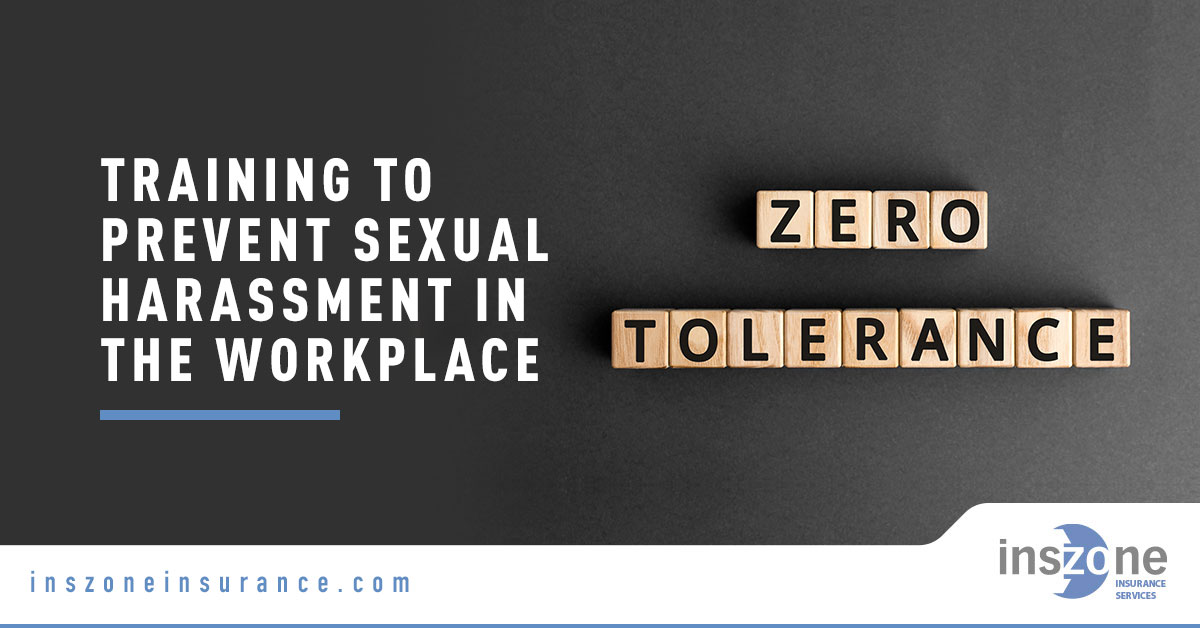Sexual harassment can occur to people of all backgrounds and personal characteristics at all levels within a business organization. Proactive sexual harassment training protects both employees and the workplace. If carried out correctly, sexual harassment training sends out a message that employers truly care about the work environment and informs employees on the procedures in the event sexual harassment occurs. Not only that, training builds the sense of community within the workplace and empowers employees to work together toward a common goal.
Not only is training the proven practice in preventing harassment in the workplace but also is required by law in the state of California.
To Define
The U.S. Equal Employment Opportunity Commission (EEOC) defines sexual harassment as:
“Unwelcome sexual advances, requests for sexual favors, and other verbal or physical conduct of a sexual nature constitutes sexual harassment when submission to or rejection of this conduct explicitly or implicitly affects an individual’s employment, unreasonably interferes with an individual’s work performance or creates an intimidating, hostile or offensive work environment.”
In addition, the EEOC offers additional guidance on what constitutes sexual harassment:
- The victim or harasser may identify themselves as any gender or as gender non-binary. It means that the victim does not need to be on a specific gender category.
- The conduct of the offender must be offensive and unwelcome by the victim.
- The harasser can be anyone; supervisor, an agent of the employer, a co-worker, a supervisor in another division of the company, or a non-employee.
- Harassment can and may still occur when there is no economic injury to or discharge of the victim.
There are many examples of sexual harassment, including, but not limited to:
- Inappropriate touching
- Unwelcome sexual advances
- Request for sexual favors
- Sending pornography without consent
- Making crude or sexual remarks
- Verbal or physical conduct of a sexual nature
What are the Different Types of Sexual Harassment in the Workplace?
In general, there are two; Quid Pro Quo and Hostile Work Environment.
- Quid Pro Quo is filed when someone in a position of power, such as a manager, uses their authority to coerce someone for sex, or a sexual relationship, in exchange for job security or otherwise punish the employee, or in exchange for favors, such as promotions or raises.
- Hostile Work Environment can be filed when a person’s speech or general conduct in the workplace negatively impacts another person’s performance at work and makes them feel uncomfortable. For example, this can occur through demeaning or sexual photographs, jokes or threats.
Why Is Sexual Harassment Training Important for Employees?
The primary goal of workplace sexual harassment training is to make sure that all employees feel safe at work. Proper training helps safeguard against unwanted behavior by clearly defining the rules and policies.
Sexual harassment training can also extend outside of the workplace. It can reach people’s personal lives, as many people do not have enough knowledge or resources on how to counter harassment personally. On the other hand, some people may also be unaware that their behavior is inappropriate. Proper training can address and correct this unacceptable conduct, improving everyone’s personal quality of life on a personal and professional level.
Why Is Sexual Harassment Training Important for Managers?
Managers are at the forefront in educating all members of the workforce. The management team of any organization must be on the same page with what is considered as socially appropriate behavior and what constitutes as sexual harassment.
With proper training, managers are empowered and educated with a standard they can refer to when a sexual harassment complaint is made.
Legal Obligations and Employer Liability
Employers are negligent when they acknowledge an act of sexual harassment and fail to take the necessary steps to protect the harassed employee. In order to avoid liability, business organizations will investigate the sexual harassment complaint and take action (which may include disciplinary action or termination to the harasser), to prevent the harassment from continuing or recurring.
Also, employers are negligent if they do not take a proactive approach to prevent sexual harassment incidents.
Sexual Harassment Training as a Shield Against Claims of Negligence
Sexual harassment training can protect businesses against charges of negligence in three ways:
- By educating all employees on the different kinds of acceptable conduct on the workplace. It should be clear during the training or onboarding process that employees are protected against sexual harassment and that the organization prohibits this behavior. This will then protect the business from claims against non-information of this organizational policy.
- By emphasizing, during training, that the employer has a process that handles complaints and encourages employees to follow this process should they feel harassed.
- By managers holding a position of influence. This means that they need to be aware of the types of sexual harassment and they must show that they take sexual harassment complaints seriously.
Requiring employees and business owners to participate in sexual harassment training helps businesses minimize the risk of lawsuits, increase employee satisfaction, reduce employee turnover, improves overall productivity, and avoids harm to the company reputation.
It is essential that business organizations understand how to recognize unacceptable behavior, how to report it and how to respond to and support employees who may encounter it. Sexual harassment training is a strategic tool to educate, influence and motivate positive behavior across the business.
If you want more information or to sign up for Sexual Harassment Prevention training, you can click here, or contact us at (877) 847-7180 or through email at compliance@inszoneins.com.
Additionally, here at Inszone we are happy to provide you information to protect against employee lawsuits, with Employment Practices Liability Insurance (EPLI). EPLI can protect your business in the event an employee brings up a lawsuit due to sexual harassment.





